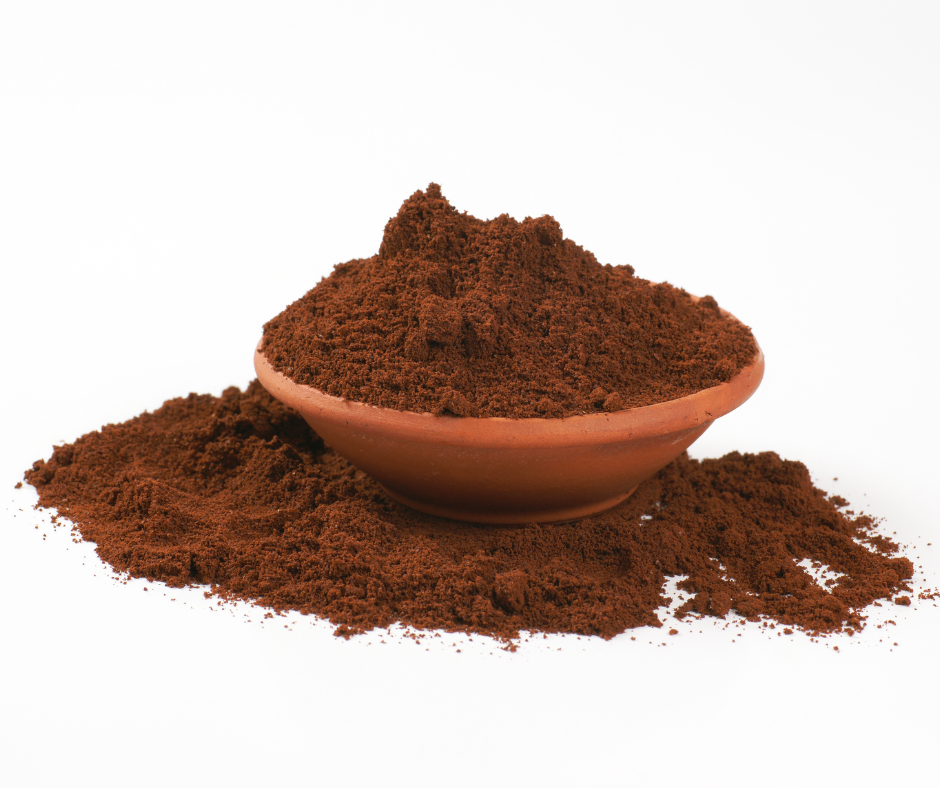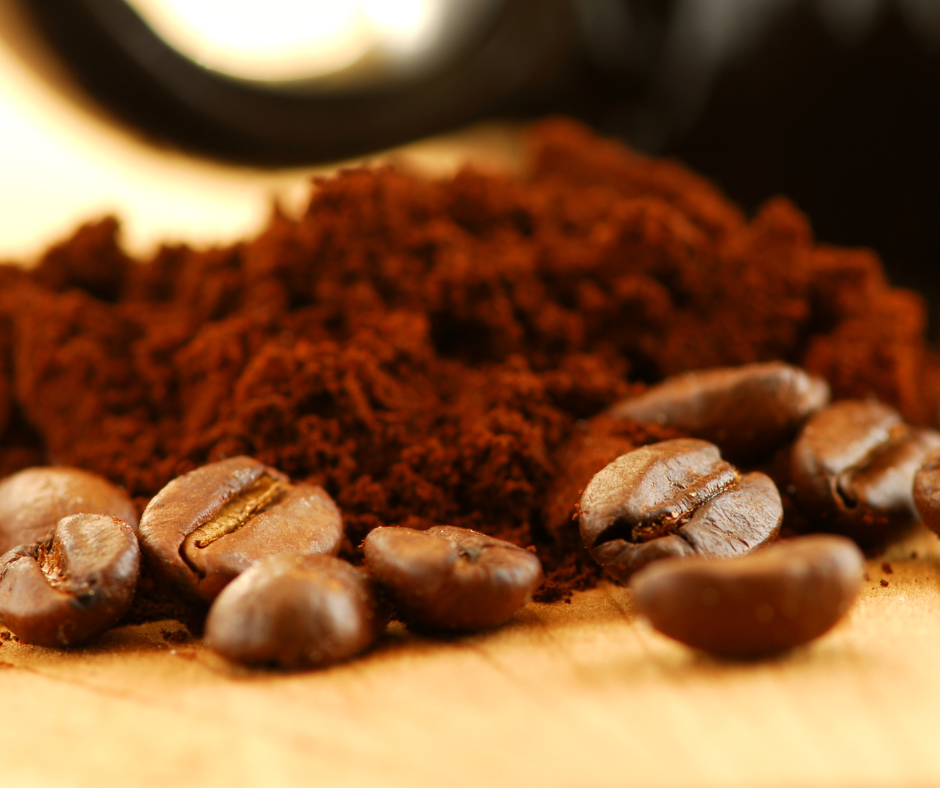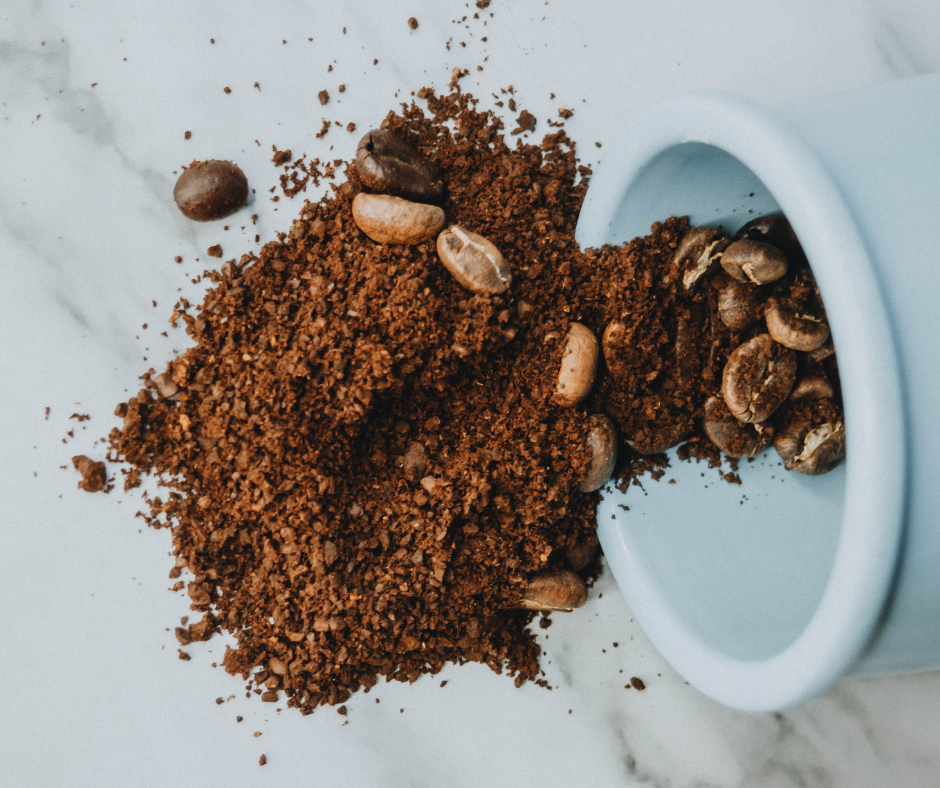Introduction
For gardeners and plant enthusiasts, finding natural and effective ways to nourish and care for their plants is always a top priority. One common question is, ‘Are Coffee Grounds Good For Tomato Plants?‘. In this article, we will explore the benefits of using coffee grounds as fertilizer and how they can contribute to the growth and health of tomato plants.
Importance Of Soil Quality For Tomato Plants
The soil quality plays a vital role in the successful growth of tomato plants. Tomatoes thrive in soil that is rich in organic matter, well-draining, and has a balanced pH level. Good soil quality ensures the plants receive essential nutrients, retain moisture, and properly develop roots.
Exploring The Use Of Coffee Grounds As Fertilizer
Coffee grounds have become a natural, inexpensive, and eco-friendly fertilizer among gardeners. They contain several beneficial nutrients that can enhance the growth of plants, including tomatoes. Here are some key points to consider when using coffee grounds as fertilizer for tomato plants:
- Improving soil structure: Coffee grounds have a high percentage of organic material, which helps improve soil structure by increasing its ability to retain moisture and essential nutrients. This enhanced soil structure promotes healthy root development and overall plant growth.
- Adding essential nutrients: Coffee grounds are rich in nitrogen, potassium, phosphorus, and other trace minerals vital for plant growth. Nitrogen is particularly beneficial for tomato plants, promoting leafy growth and enhancing fruit production. The other nutrients in coffee grounds contribute to overall plant health and vigor.
- Enhancing soil acidity: Tomato plants prefer slightly acidic soil with a pH between 6.0 and 6.8. Coffee grounds are moderately acidic, so incorporating them into the soil helps maintain the ideal pH level for tomatoes. However, it is important not to overdo it, as excessive acidity can negatively affect plant growth.
- Using coffee grounds as mulch: Besides being used as a soil amendment, coffee grounds can be used as mulch around tomato plants. Mulching with coffee grounds helps retain soil moisture, suppresses weed growth, and adds organic matter to the soil as it breaks down. However, it is important to avoid piling the coffee grounds too close to the stem of the plant, as this may cause it to rot.
It is important to note that while coffee grounds can greatly benefit tomato plants, they should be used in moderation. Excessive use of coffee grounds can lead to an imbalance in soil pH or nutrient levels. Mixing coffee grounds with other compost or organic matter is recommended to ensure a well-balanced and nutrient-rich soil.
In conclusion, using coffee grounds as fertilizer for tomato plants can be valuable to your gardening routine. They provide essential nutrients, improve soil structure, and enhance tomato plants’ overall health and productivity. By being mindful of the quantity and application methods, you can harness the benefits of coffee grounds to create a thriving garden.
Are Coffee Grounds Good For Tomato Plants?
Coffee lovers, here’s some good news for you! Did you wonder, ‘Are Coffee Grounds Good For Tomato Plants?’ Yes! Those used coffee grounds that often end up in the trash can positively impact the growth and health of your beloved tomatoes. Let’s explore why coffee grounds are a great addition to your garden and how they can nourish your tomato plants.
Nutrients Present In Coffee Grounds
Coffee grounds contain several essential nutrients that are beneficial for plants, including nitrogen, phosphorus, and potassium. These nutrients are commonly referred to as NPK and are crucial for the growth and development of tomatoes. Nitrogen helps in leafy green growth, phosphorus aids in root development, and potassium contributes to plant health and disease resistance.
Role Of Nitrogen, Phosphorus, And Potassium In Tomato Plant Growth
Nitrogen is essential for tomato plants, promoting vibrant green foliage and ensuring healthy growth. Adding coffee grounds rich in nitrogen can boost your tomato plants, leading to lush and vigorous leaves.
Phosphorus plays a key role in root development and flower and fruit production. By incorporating coffee grounds into the soil, you can enhance the phosphorus levels, resulting in stronger root systems and increased yield of tomatoes.
Potassium is crucial for overall plant health and disease resistance. It helps in water regulation, nutrient uptake, and the development of strong stems. Potassium in coffee grounds can contribute to the overall well-being of your tomato plants, making them more resilient to pests and diseases.
The Acidity Of Coffee Grounds And Its Impact On Tomato Plants
Coffee grounds have a slightly acidic pH, benefiting plants that prefer acidic soil, such as tomatoes. The pH of the soil affects the availability of nutrients to plants. The acid content in coffee grounds can help lower the pH of alkaline soil, making it more suitable for tomato plants.
It’s important to note that while coffee grounds are a useful addition to your tomato plants’ diet, they should be used in moderation. Excessive use of coffee grounds can lead to overly acidic soil, which may not be favorable for tomato plants. Mixing the coffee grounds with compost or other organic matter is recommended to balance the pH and provide a well-rounded nutrient profile for your tomatoes.
In conclusion, coffee grounds can be valuable in nourishing your tomato plants. They provide essential nutrients like nitrogen, phosphorus, and potassium, which promote healthy growth, root development, and overall plant health. However, it’s important to use coffee grounds in moderation and balance their acidity with other organic materials. So, the next time you enjoy your morning cup of joe, don’t forget to save those coffee grounds for your tomatoes – they’ll thank you with an abundant and delicious harvest!
Using Coffee Grounds As Fertilizer For Tomato Plants
Proper Application Of Coffee Grounds In The Garden
Coffee grounds can be a great addition to your gardening routine, especially if you are growing tomato plants. The high nitrogen content of coffee grounds makes them an ideal fertilizer for these plants. However, it’s important to understand how to apply coffee grounds to maximize their benefits properly.
Here are some tips for using coffee grounds as fertilizer for your tomato plants:
- Composting: Before using coffee grounds, it’s recommended to compost them first. Mixing coffee grounds with other organic matter, such as leaves or vegetable scraps, helps to decompose the coffee grounds and release their nutrients slowly. Composting also helps to balance the pH level of the soil.
- Apply in moderation: While coffee grounds can benefit tomato plants, it’s important not to overdo it. Applying a thin layer of coffee grounds around the base of the plants every few weeks is usually sufficient. Too much coffee grounds can cause nitrogen burn, stunting the plant’s growth.
- Mix with other organic fertilizers: Coffee grounds can be combined with other organic fertilizers, such as compost or aged manure, to create a balanced mix of nutrients. This combination can provide a complete range of essential nutrients for your tomato plants.
Dos And Don’ts To Avoid Overuse
While coffee grounds can benefit your tomato plants, avoiding overusing them is important. Here are some dos and don’ts to keep in mind:
Do:
- Mix coffee grounds with compost or other organic matter before applying to the soil.
- Apply coffee grounds in moderation, about a quarter-inch layer around the base of the plants.
- Monitor the growth of your plants and adjust the amount of coffee grounds accordingly.
Don’t:
- Apply coffee grounds directly to the plants without composting them first.
- Use excessive coffee grounds, as it can lead to nitrogen burn.
- Rely solely on coffee grounds as the primary fertilizer for your tomato plants.
Incorporating Coffee Grounds Into The Soil
Besides using coffee grounds as a top dressing, you can also incorporate them into the soil. Mixing coffee grounds into the soil can improve its structure, drainage, and water-holding capacity. It also adds organic matter and encourages beneficial microorganisms in the soil.
To incorporate coffee grounds into the soil, follow these steps:
- Dig small trenches: Dig small trenches around your tomato plants.
- Add coffee grounds: Sprinkle coffee grounds into the trenches.
- Blend with soil: Use a garden fork or shovel to blend the coffee grounds with the soil.
- Water: Water the plants thoroughly after incorporating the coffee grounds.
Properly incorporating coffee grounds into the soil can ensure a more balanced distribution of nutrients and promote overall plant health.
In conclusion, using coffee grounds as a fertilizer for your tomato plants can be beneficial if done correctly. Composting the coffee grounds, applying them in moderation, and mixing them with other organic fertilizers are key practices. Avoid overusing coffee grounds and incorporate them into the soil when possible. With these tips, you can nourish your tomato plants and enjoy a bountiful harvest.
Debunking Myths And Managing Expectations
For avid gardeners and enthusiasts, the idea of using coffee grounds as a fertilizer for tomato plants has been circulated for years. But is there any truth to this popular notion? In this article, we will explore the scientific evidence behind using coffee grounds in the garden, clear up any misconceptions, and guide how to use them to nourish your tomato plants effectively.
Scientific Evidence Supporting The Use Of Coffee Grounds
While anecdotal evidence may suggest that coffee grounds are beneficial for tomato plants, limited scientific research is available to support these claims. However, studies have shown that coffee grounds can contribute to the soil’s overall health by improving its structure, water retention, and organic matter content. This, in turn, can create a favorable environment for tomato plants to thrive.
Coffee grounds are composed of organic matter and contain essential nutrients such as nitrogen, potassium, phosphorus, and magnesium. These nutrients can be slowly released into the soil, providing a natural source of nourishment for your tomato plants. Additionally, coffee grounds have a slightly acidic pH, which can help acid-loving plants like tomatoes maintain optimal growing conditions.
Understanding The Limitations And Time Frame For Results
It is important to note that coffee grounds should not be used as a standalone fertilizer for tomato plants. While they can provide some nutrients, they should be used with other fertilizers to ensure a balanced nutrient profile. Incorporating compost or other organic fertilizers in combination with coffee grounds can help provide a more complete range of nutrients for your tomato plants.
Furthermore, the effects of using coffee grounds as a fertilizer may take time to become noticeable. The nutrients in coffee grounds are released slowly, requiring microbial activity in the soil to break them down and make them available to plants. Therefore, seeing the full benefits may take several weeks or months.
Balancing Coffee Ground Usage With Other Fertilizers
Balancing coffee ground usage and other fertilizers is crucial to use coffee grounds in your tomato garden effectively. Before applying them to the soil, a general guideline is to mix coffee grounds with other organic materials, such as compost or well-rotted manure. This will help provide a diverse range of nutrients and prevent potential imbalances.
It is also advisable to use coffee grounds in moderation. Excessive use of coffee grounds can increase the soil’s acidity over time, disrupting the pH balance and hindering plant growth. A good rule of thumb is to limit coffee grounds to no more than 20% of the total volume of organic material used in your garden.
In conclusion, while coffee grounds can contribute to the soil’s overall health and provide some nutrients for tomato plants, they should be used in conjunction with other fertilizers and in moderation. Managing expectations and understanding that results may take time to become noticeable is important. Following these guidelines and maintaining a balanced approach, you can use coffee grounds to nourish your tomato plants and enhance their growth.
FAQ: Are Coffee Grounds Good For Tomato Plants? – Coffee Grounds in the Garden: Nourishing Tomato Plants
Q: Do coffee grounds contain any nutrients that are beneficial for tomato plants?
A: Yes, coffee grounds contain approximately 2% nitrogen, as well as varying amounts of phosphorus and potassium, which are all essential for the growth of tomato plants.
Q: How do coffee grounds affect tomato plants?
A: You introduce these necessary nutrients by incorporating coffee grounds into the soil beneath your tomato plants. However, coffee grounds don’t act like traditional fertilizers and may take some time to have an impact on the soil and benefit the plants.
Q: Are other fertilizers available better suited for tomato plants?
A: If you prefer using store-bought fertilizers, options specifically designed for tomato plants can likely offer greater benefits compared to coffee grounds.
Q: Is there scientific evidence supporting the use of coffee grounds for tomato plants?
A: While there isn’t scientific proof that coffee grounds enhance the rate of growth or increase the yield of tomatoes, there is scientific data that supports the belief that coffee grounds can benefit tomato plants. This is mainly because tomato plants thrive in slightly acidic soil.
Q: How should I use coffee grounds for my tomato plants?
A: You can take approximately 1 cup of used coffee grounds and spread them around the base of your tomato plant. Work the grounds into the top 2-3 inches of the soil, allowing them to break down and release their nutrients. Alternatively, you can incorporate coffee grounds into a compost bin to create compost that can be used as fertilizer for your plants.
Q: Can coffee grounds be a natural alternative to chemical fertilizers for tomato plants?
A: If you prefer not to use chemical fertilizers, used coffee grounds can be an excellent natural option to create suitable soil conditions for your tomato plants to thrive.
Q: What should I keep in mind when using coffee grounds for my tomato plants?
A: While coffee grounds can be beneficial, it’s essential to understand why plants may benefit from them and how to use them properly for the best results. Additionally, it’s important to note that the effects of coffee grounds on tomato plants may not be immediate, as they take some time to break down and release their nutrients into the soil.
Conclusion
Summary Of The Benefits And Considerations When Using Coffee Grounds For Tomato Plants
Now you should know the answer to ‘Are Coffee Grounds Good For Tomato Plants?’. Using coffee grounds in your garden can benefit your tomato plants. Here is a summary of the benefits and considerations to keep in mind:
- Nutrient Boost: Coffee grounds are rich in nitrogen, an essential nutrient for plant growth. Adding coffee grounds to your tomato plants can provide a natural fertilizer and promote healthy foliage and fruit development.
- Improved Soil Structure: Coffee grounds can improve soil structure by increasing organic matter content. This can enhance water retention and drainage, ensuring your tomato plants receive the right moisture for optimal growth.
- Natural Pest Control: Coffee grounds may have repellent properties that can deter certain pests, such as slugs and snails. Spread a thin layer of coffee grounds around your tomato plants to create a barrier that pests are less likely to cross.
However, there are some considerations to keep in mind when using coffee grounds in your garden:
- Acidity Levels: Coffee grounds are naturally acidic. While this can benefit acid-loving plants like tomatoes, it’s important not to overdo it. Use coffee grounds in moderation to avoid making the soil too acidic, which can harm your plants.
- Composting: It’s recommended to compost coffee grounds before using them in your garden. Composting helps to break down the grounds, neutralize their acidity, and make their nutrients more readily available to plants. Mix composted coffee grounds into the soil or use them as mulch around your tomato plants.
- Balance with Other Amendments: Coffee grounds should not be the sole source of nutrients for your tomato plants. Consider combining them with other organic amendments like compost, aged manure, or balanced fertilizers to provide a well-rounded nutrient profile for your plants.
Encouraging Experimentation And Responsible Gardening Practices
While coffee grounds can benefit tomato plants, it’s important to approach gardening with experimentation and responsible practices in mind. Here are a few tips:
- Test and Observe: Start by using a small amount of coffee grounds around your tomato plants and observe their response. Reduce your coffee grounds if the plants show signs of stress or leaf discoloration.
- Monitor Soil pH: Regularly test the acidity of your soil to ensure it remains within the optimal range for tomato plants. If the pH becomes too acidic, consider adding lime or other amendments to balance it.
- Rotate Crops: Avoid using coffee grounds in the same spot year after year to prevent the buildup of excessive acidity in the soil. Rotate your tomato plants to different garden areas to promote healthy growth.
In conclusion, properly using coffee grounds can benefit your tomato plants’ care routine. By understanding the benefits and considering the necessary precautions, you can give your tomato plants the nutrients they need for healthy growth and a bountiful harvest.

Deb Carlson at Crosslake Coffee: Join Deb at Crosslake Coffee for a delightful blend of community, caffeine, and creativity. Discover the cozy ambiance and warm hospitality that make this local coffee shop a beloved gathering spot. From expertly crafted espresso drinks to mouthwatering pastries, Deb invites you to savor every sip and bite. Stay connected with the latest updates on specials, events, and live music performances by following Deb Carlson at Crosslake Coffee on social media. Embrace the vibrant online community and share your love for great coffee and good company with fellow enthusiasts. Don’t miss out on a moment of the Crosslake Coffee experience – connect with Deb on social media today.



